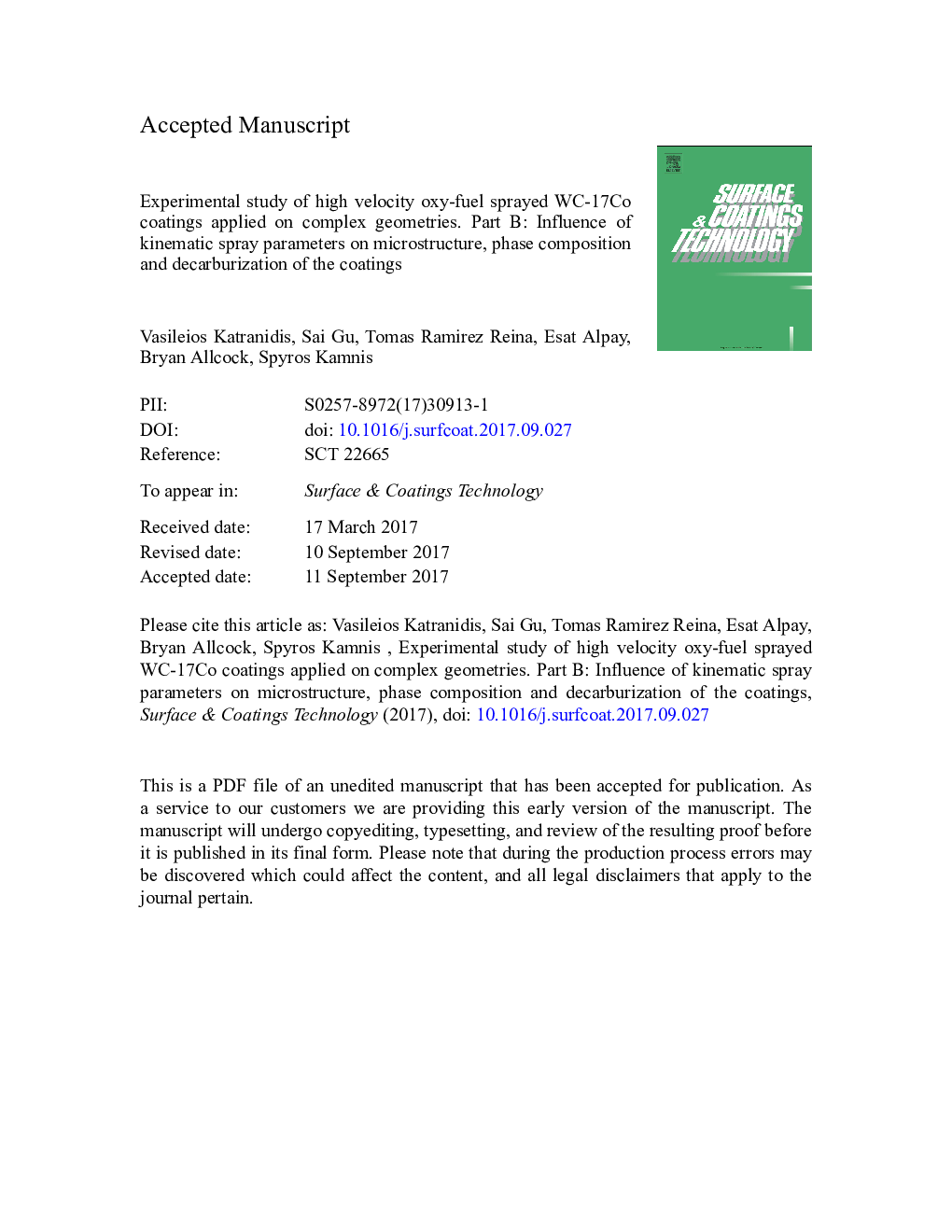| Article ID | Journal | Published Year | Pages | File Type |
|---|---|---|---|---|
| 5464495 | Surface and Coatings Technology | 2017 | 56 Pages |
Abstract
The aim of this study is to evaluate comprehensively the effect of spray angle, spray distance and gun traverse speed on the microstructure and phase composition of HVOF sprayed WC-17 coatings. An experimental setup that enables the isolation of each one of the kinematic parameters and the systemic study of their interplay is employed. A mechanism of particle partition and WC-cluster rebounding at short distances and oblique spray angles is proposed. It is revealed that small angle inclinations benefit notably the WC distribution in the coatings sprayed at long stand-off distances. Gun traverse speed, affects the oxygen content in the coating via cumulative superficial oxide scales formed on the as-sprayed coating surface during deposition. Metallic W continuous rims are seen to engulf small splats, suggesting crystallization that occurred in-flight.
Related Topics
Physical Sciences and Engineering
Materials Science
Nanotechnology
Authors
Vasileios Katranidis, Sai Gu, Tomas Ramirez Reina, Esat Alpay, Bryan Allcock, Spyros Kamnis,
